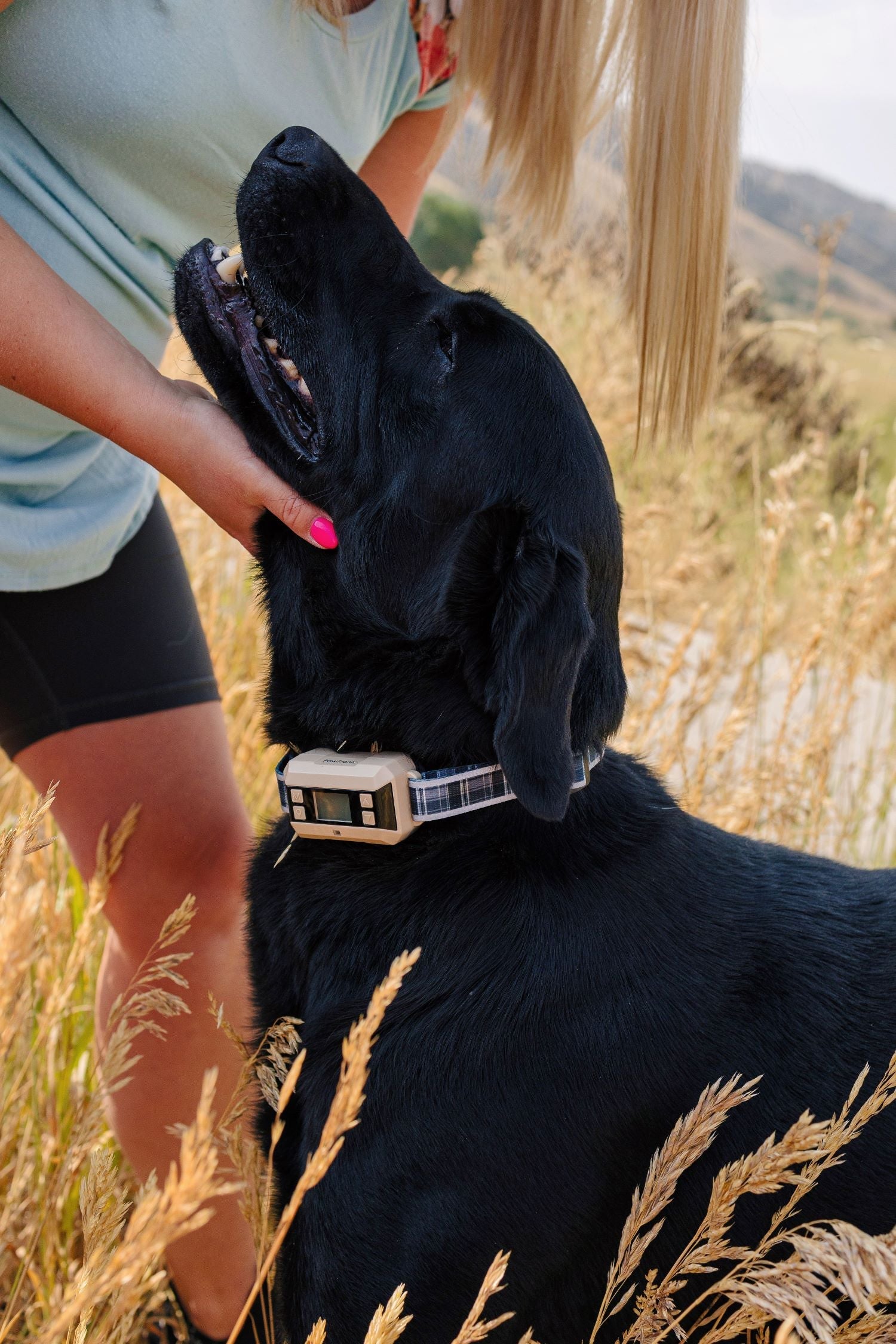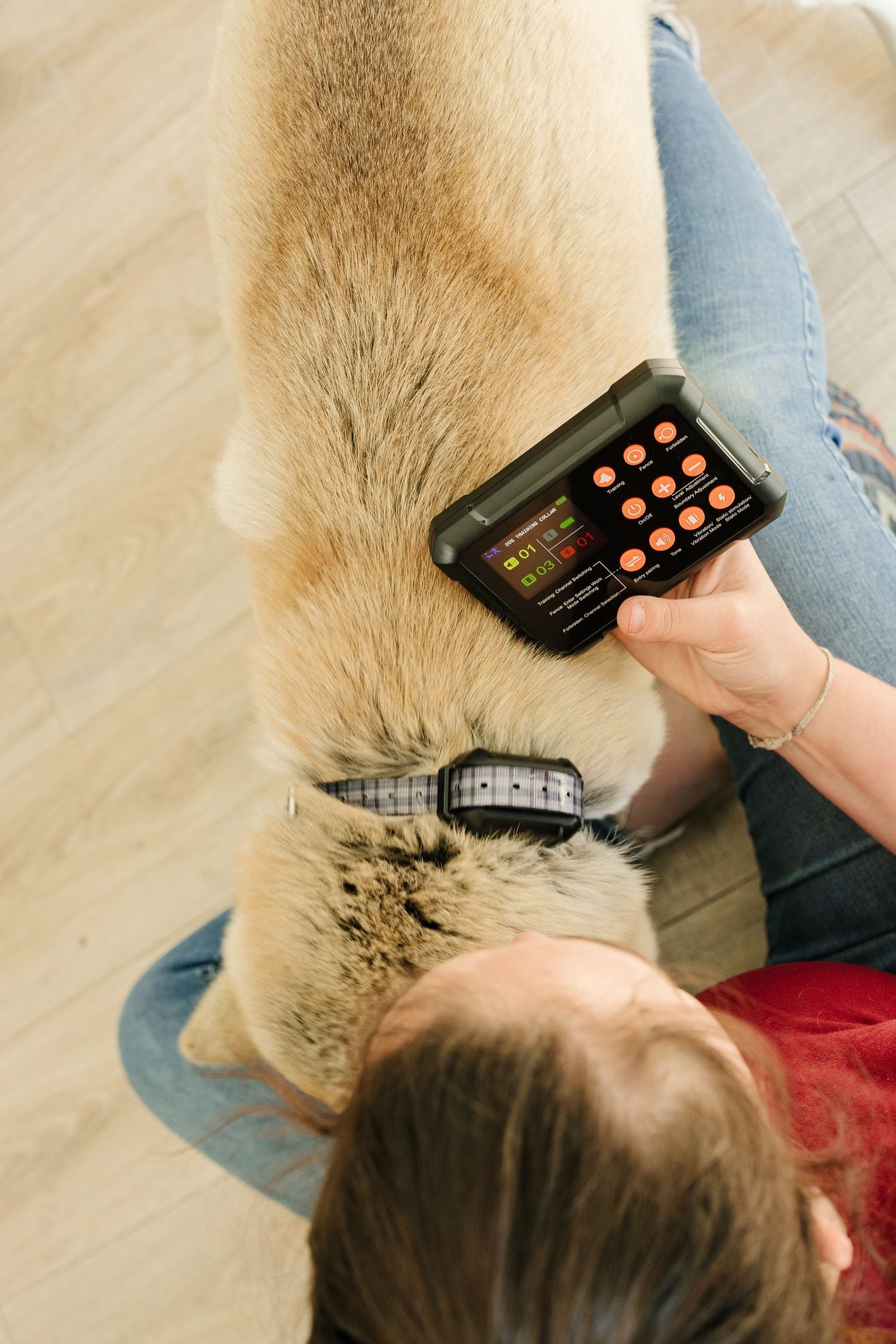Effect of Diet and Nutrition on Dog’s Behavior and Training
Every dog owner yearns for a content, healthy, well-mannered friend. Though most of the first thoughts that come to me when addressing behavioral issues are exercise and training, many overlook one crucial factor: nutrition. Like with humans, a dog's attitude, energy level, and learning ability are highly influenced by what they eat. The proper mix of nutrients can increase cognitive ability, regulate behavior, and also increase the efficacy of training programs. Conversely, a bad diet could cause hyperactivity, irritation, anxiety, and problems of focused attention.
Modern pet care inventions like the Pawtronic GPS Fence guarantee dogs' safety when exploring their surroundings. Still, a dog's overall health primarily relies on diet even with the best of technologies. This blog will examine how diet influences dog behavior, the connection between certain nutrients and mental health, and how to maximize nutrition for best training outcomes.
The Science Behind Diet and Dog Behavior
Research on dog's behavior has revealed that diet is absolutely vital. Dogs fed a high-quality, balanced diet showed less behavioral issues than those eating low-quality or highly processed meals, according a 2017 study composed up in the Journal of Veterinary Behavior. This is so because basic foods affect brain activity, synthesis of neurotransmitters, and general mood control.
Proteins, for example, supply amino acids needed for neurotransmitters like serotonin and dopamine, which control behavior and mood. Carbohydrates affect energy levels; lipids are vital for brain development. Any one of these elements missing or present in excess might cause mood swings, hyperactivity, or lethargy, therefore influencing a dog's capacity to learn and obey directions.
How Does Protein Affect a Dog's Behavior?
Although a dog's diet consists mostly of protein, the type and source of that protein counts greatly. Excellent animal-based proteins such chicken, fish, and beef supply necessary amino acids supporting muscular growth and brain function. Turkey and eggs include an amino acid called tryptophan, which is essential for the synthesis of serotonin, a neurotransmitter meant to induce emotional stability and serenity.
When a dog's meal lacks enough protein, they may exhibit signs of irritability, anxiousness, or problems in concentrating during training. Conversely, too much protein, especially from poor-quality sources has been associated with hyperactivity and aggressive behavior. Maintaining a consistent mood requires finding the right blend.
The Role of Carbohydrates in Energy and Focus
Dogs mostly get their energy from carbohydrates, but not all carbs are made equal. Whole grains, vegetables, and fruits give a continuous release of glucose, so guaranteeing constant energy levels all through the day. For training especially, this is crucial as a dog must remain attentive and involved.
On the contrary, meals heavy in processed carbs and sweets might create blood sugar spikes and crashes, which would produce irregular behavior, restlessness, and trouble following directions. A well-balanced diet including sophisticated carbs ensures improved attention span during training sessions and continuous energy.
Healthy Fats for Brain Function
Especially omega-3 and omega-6 fatty acids, fats are vital for brain function. Found in fish, flaxseeds, and certain oils, these fatty acids are absolutely vital for cognitive ability, memory retention, and emotional stability. Dogs on diets high in omega-3’s show less anxiety, are simpler to train, and have superior problem-solving ability, according to studies.
Adding sources of good fats to a dog's diet not only enhances their hair and skin condition but also helps mental clarity and lowers their risk of age-related cognitive decline.
The Link Between Micronutrients and Behavior
Vitamins and minerals are really important when it comes to a dog’s mood and behavior.For example:
Vitamin B: Vital for brain functioning and energy production. While not getting enough nutrients can make dogs feel anxious or even a bit down.
Magnesium: Aids in stress reduction and relaxation. When levels are low, it can lead to feelings of nervousness and restlessness.
Zinc: Essential for brain activity. A lack might cause learning to proceed slowly and with poor concentration.
Making sure your dog eats a mix of nutrient-packed foods is key for keeping their emotions in check and helping with training.
The Dangers of Artificial Additives
Many commercial dog diets have synthetic preservatives, colors, and flavors that might affect behavior. Studies point to chemicals including artificial colors, BHA, and BHT possibly causing hyperactivity, anxiety, and aggressiveness in dogs. A dog's disposition and capacity to pick up new orders will be much better if one chooses natural, whole-food-based diets instead of overly processed ones.
How Nutrition Impacts Training Success?
Teaching a dog calls for consistency, patience, and rewards. But even the best training techniques could not be sufficient if a dog is not getting the correct diet. A dog that is well-fed with steady energy levels and a calm demeanor is considerably more likely to answer commands satisfactorily.
Some fundamental dietary guidelines that increase the efficiency of training consist in:
- Feeding before training: Before exercise, a light dinner offers energy without making one lethargic.
- Choosing natural, high-protein foods like chicken bits or carrots instead of processed treats will help to keep a dog interested.
- Maintaining hydration: Confusion and irritability can follow from dehydration. Maintaining continual fresh water access is absolutely vital.
Including these routines helps dog owners maximize the response of their pet during training sessions.
The Importance of Consistency in Diet
Consistency in eating is crucial, much as in training schedules and physical activity. Inconsistent feeding schedules, poor-quality meals, or regular changes in food might cause stomach disturbance and behavioral instability. Dogs live on routine, hence keeping a consistent diet including premium ingredients helps them to be generally healthy and easy to train.
The Pawtronic GPS Fence offers a great approach for owners who enjoy taking their dogs on outdoor excursions to guarantee their safety and let them explore free. But regardless of the area a dog has to wander, their diet always forms the basis of their health and personality.
Choosing the Right Diet for Your Dog
Every dog is different, and their dietary needs must vary based on breed, age, activity level, and health conditions. While elderly dogs can benefit from a diet low in calories but high in joint-supporting minerals. High-energy breeds like Border Collies need more protein and fat.
Some broad rules for choosing a healthy diet consist in:
- Choosing premium organic ingredients
- Avoiding synthetic additions and fillers
- Selecting proteins, lipids, and carbs fit for the dog's degree of exercise
- Including fresh fruits and veggies will supply extra minerals and vitamins.
See a veterinarian to develop a customized diet plan that improves behavior and training success for people not sure about the particular requirements of their dog.
Conclusion: Nutrition as the Key
From their mood and energy level to their capacity to learn and obey directions, a dog's nutrition affects all the elements of their life. Maintaining a balanced diet helps to avoid behavioral problems and result in a better harmony between dogs and their owners.
Thanks to advancements like the Pawtronic GPS Dog Fence, which lets dogs explore freely without restriction. Still, nutrition is the cornerstone of a content, well-adjusted pet even with the greatest containment technologies. Owners may set their beloved friends up for a lifetime of excellent health, obedience, and friendship by giving high-quality food and correct nutrition top priority.




Leave a comment
This site is protected by hCaptcha and the hCaptcha Privacy Policy and Terms of Service apply.